Filter by
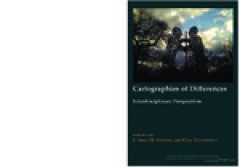
Cartographies of Differences: Interdisciplinary Perspectives
This volume investigates the process of learning how to live with individual and group differences in the twenty-first century and examines the ambivalences of contemporary cosmopolitanism. Engaging with the concept of ‘critical cartography’, it emphasizes the structural impact of localities on the experiences of those living with difference, while trying to develop an account of the counte…
- Edition
- Ed. 1
- ISBN/ISSN
- 9783035397000; 9783034318594
- Collation
- 240
- Series Title
- New Visions of the Cosmopolitan
- Call Number
- 306.07 CAR c
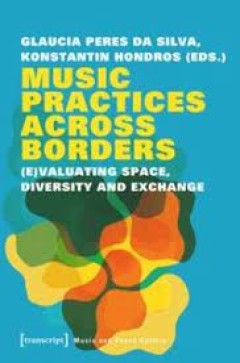
Music Practices Across Borders (E)Valuating Space, Diversity and Exchange
Klavier plus Streichquartett. Im vierstelligen Bereich sind Werke bekannt. In mittlerer dreistelliger Zahl als Tonaufnahme zugänglich. Über 200 Jahre kontinuierliche Produktion. Bis heute. Und doch fehlt das Genre weitgehend in den Leitmedien Klassischer Musik. In den meinungsführenden Feuilletons und Musikgeschichtswerken. Und in den Programmen der prestigeträchtigen Rundfunksender und Lab…
- Edition
- -
- ISBN/ISSN
- 9783839446676
- Collation
- -
- Series Title
- -
- Call Number
- -
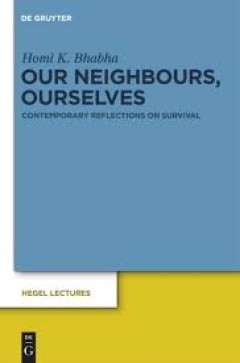
Our Neighbours, Ourselves Contemporary Reflections on Survival
Homi K. Bhabha delivered the 2010 Hegel lecture, evoking the spirit of Hegel in an attempt to understand contemporary issues of ethical witness, historical memory and the rights and representations of minorities in the cultural sphere. Who is our neighbour today? What does hospitality mean for our times? Why is the recognition of others such an agonizing encounter with the alterity of the self?…
- Edition
- -
- ISBN/ISSN
- 9783110262445
- Collation
- -
- Series Title
- -
- Call Number
- -

Chile’s Salmon Industry : Policy Challenges in Managing Public Goods
This book is the first to analyze Chile’s salmon farming industry in discussing industrial development in terms of the management of public goods. The book highlights important aspects of learning and capacity development, environmental sustainability, institutions, and social welfare or inclusiveness. With aquaculture now providing almost half the global fish harvest, Chile’s salmon farmi…
- Edition
- 1
- ISBN/ISSN
- 978-4-431-55766-1
- Collation
- XVIII, 210
- Series Title
- Policy Challenges in Managing Public Goods
- Call Number
- 630
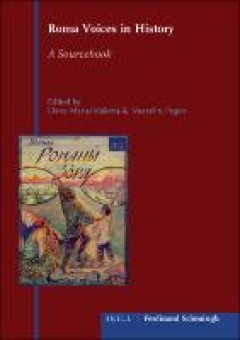
Roma Voices in History
This ground-breaking book is an impressively extensive collection of primary historical sources in various languages that reflect the history of the Roma (formerly referred to as ‘Gypsies’ in local languages). The selection of the included materials reflects the authentic voice of the Roma them - selves, and presents their visions and the specific goals pursued by the Roma civic emancipatio…
- Edition
- -
- ISBN/ISSN
- 9783657705184
- Collation
- -
- Series Title
- -
- Call Number
- -
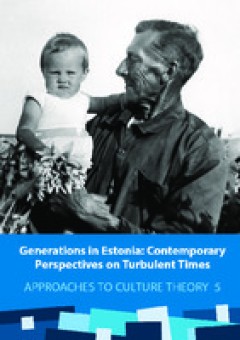
Generations in Estonia: Contemporary Perspectives on Turbulent Times
This book provides the international reader with the first study of different generations and intergenerational relations in Estonia. The chapters highlight generational patterns in the 20th and 21st centuries, with the volume as a whole taking an interdisciplinary approach. Sharing the idea that generations are dynamic, that their borders are blurred and change over time, and that their constr…
- Edition
- -
- ISBN/ISSN
- 9789949770564
- Collation
- -
- Series Title
- -
- Call Number
- -
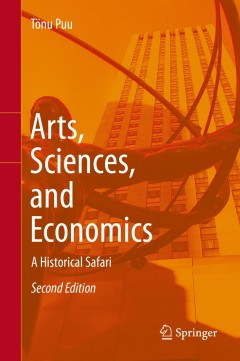
Arts, Sciences, and Economics: A Historical Safari
This book deals with the economic aspects of changing attitudes in arts and sciences. The effects of the public good character of culture, along with the very long production period and lifetime for its products, are emphasized, since both contribute to the failure of normal market solutions. Embodiment of ideas and the consequences of modern reproduction technology for protection of property r…
- Edition
- Ed. 1
- ISBN/ISSN
- 978-3-662-44130-5
- Collation
- XXIV, 189
- Series Title
- -
- Call Number
- 330 PUU a

A Hand-Book for Travellers in Spain, and Readers at Home
Targeted at both intrepid travellers and 'readers at home', this two-volume account of Spanish history, topography and culture by Richard Ford (1796–1858) combines the rigour of a gazetteer with the humour and pace of a private travel diary. First published in 1845, as part of John Murray's series of guidebooks, the work made an immediate impact upon the reading public, and it was celebrated …
- Edition
- -
- ISBN/ISSN
- 9781139096157
- Collation
- -
- Series Title
- Cambridge Library Collection - Travel, Europe
- Call Number
- -

A Hand-Book for Travellers in Spain, and Readers at Home
Targeted at both intrepid travellers and 'readers at home', this two-volume account of Spanish history, topography and culture by Richard Ford (1796–1858) combines the rigour of a gazetteer with the humour and pace of a private travel diary. First published in 1845, as part of John Murray's series of guidebooks, the work made an immediate impact upon the reading public, and it was celebrated …
- Edition
- -
- ISBN/ISSN
- 9781139096140
- Collation
- -
- Series Title
- Cambridge Library Collection - Travel, Europe
- Call Number
- -
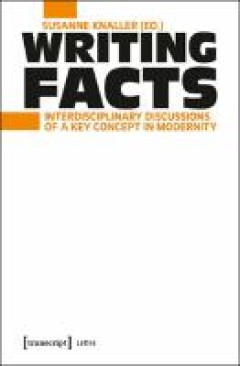
Writing Facts : Interdisciplinary Discussions of a Key Concept in Modernity
Fact« is one of the most crucial inventions of modern times. Susanne Knaller discusses the functions of this powerful notion in the arts and the sciences, its impact on aesthetic models and systems of knowledge. The practice of writing provides an effective procedure to realize and to understand facts. This concerns preparatory procedures, formal choices, models of argumentation, and narrative…
- Edition
- -
- ISBN/ISSN
- 9783839462713
- Collation
- -
- Series Title
- -
- Call Number
- 306
 Computer Science, Information & General Works
Computer Science, Information & General Works  Philosophy & Psychology
Philosophy & Psychology  Religion
Religion  Social Sciences
Social Sciences  Language
Language  Pure Science
Pure Science  Applied Sciences
Applied Sciences  Art & Recreation
Art & Recreation  Literature
Literature  History & Geography
History & Geography